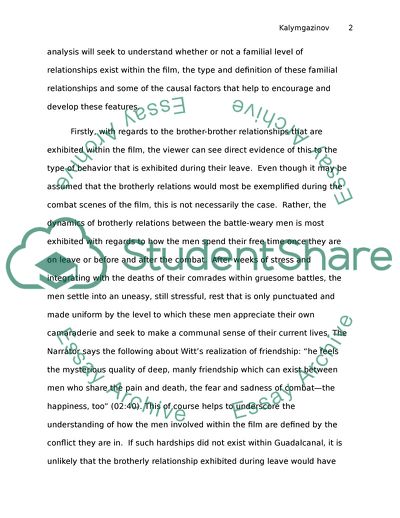Cite this document
(Human relationships Between Soldiers in The Thin Red Line Movie Review - 1, n.d.)
Human relationships Between Soldiers in The Thin Red Line Movie Review - 1. https://studentshare.org/visual-arts-film-studies/1801214-relationships-between-soldiers-in-the-thin-red-line-1998-malick
Human relationships Between Soldiers in The Thin Red Line Movie Review - 1. https://studentshare.org/visual-arts-film-studies/1801214-relationships-between-soldiers-in-the-thin-red-line-1998-malick
(Human Relationships Between Soldiers in The Thin Red Line Movie Review - 1)
Human Relationships Between Soldiers in The Thin Red Line Movie Review - 1. https://studentshare.org/visual-arts-film-studies/1801214-relationships-between-soldiers-in-the-thin-red-line-1998-malick.
Human Relationships Between Soldiers in The Thin Red Line Movie Review - 1. https://studentshare.org/visual-arts-film-studies/1801214-relationships-between-soldiers-in-the-thin-red-line-1998-malick.
“Human Relationships Between Soldiers in The Thin Red Line Movie Review - 1”. https://studentshare.org/visual-arts-film-studies/1801214-relationships-between-soldiers-in-the-thin-red-line-1998-malick.


